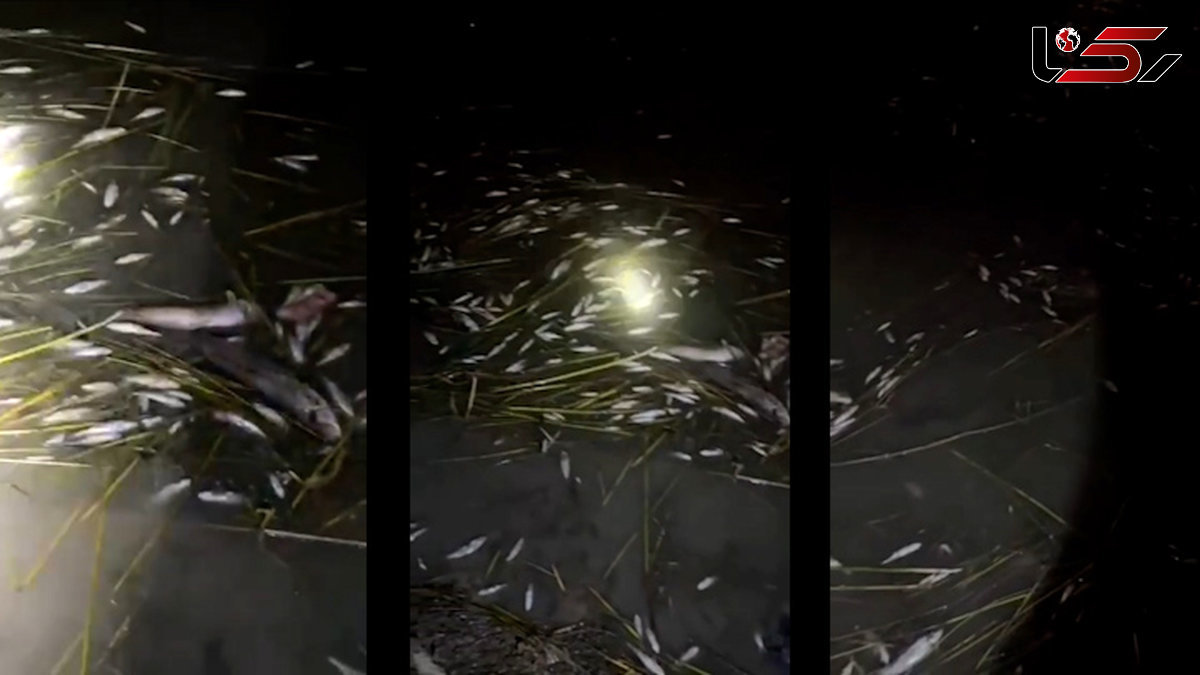In an Interview with Rokna, Saber Vatandoost Discussed:
Deadly Electrofishing in Khuzestan / Lack of Resources Stalls Response + Video
Rokna Social Desk: An ichthyologist has warned that the prevalence of illegal electrofishing in Khuzestan poses a serious threat to biodiversity and the ecological balance of the region’s waters.

According to Rokna’s social affairs correspondent, Saber Vatandoost, an ichthyologist, in an interview with Rokna, referring to the spread of a dangerous and illegal fishing method in certain parts of the country, particularly Khuzestan, stated:
“Unfortunately, a method known as electrofishing has become common in these areas. It should be noted that there is a type of scientific and controlled electrofishing used worldwide, and even in Iran, by researchers. This method employs a device called an electrofisher or electrofishing equipment, using a controlled electrical current. In research, when it is necessary to study the diversity of fish species in a region, the researcher must have a tool capable of capturing all sizes and species, as many species, such as loaches with their small size, cannot be caught using ordinary nets. In such cases, a weak electroshock device is used, which delivers only a mild shock within a radius of at most one and a half to two meters, without harming the fish.”
He added:
“However, what is happening in Khuzestan and some other areas is a destructive and illegal version of this method. These individuals use any type of battery available to them, even heavy vehicle batteries, delivering an extremely powerful electric current into the water that affects all types of fish. I have personally observed multiple instances of this in Karun, Shadegan, and Hour al-Azim. Even large and valuable species are removed from the life cycle by this method, which results in the overpopulation of smaller species of fish.”
According to Saber Vatandoost, one of the reasons poachers use this method is its low cost. He further explained:
“Ordinary fishing nets are selective, and depending on the mesh size, they only catch certain species and sizes. Moreover, nets gradually tear, get caught on debris and branches, or need replacement; whereas an electric shock device, once built, can be used repeatedly. More importantly, it catches fish of all sizes and at all depths—even those of little economic value, such as loaches or catfish—which nevertheless play important roles in the ecosystem. In this unscientific method, the shock is so powerful that the fish do not survive even after being released.”
Regarding the catch quantity per use of this method, he said:
“The number of fish caught depends on the density of fish at that location. The fisherman moves with a boat while applying electric shocks, and whatever is present along the route is caught. This number is not fixed and can sometimes be low and sometimes extremely high.”
Vatandoost, pointing to the role and efforts of the Department of Environment in addressing this phenomenon, said:
“The Department of Environment and game wardens are pursuing this issue, but the reality is that shortages of manpower and equipment have tied their hands. Game wardens are not dealing only with illegal fishing; there are also poaching cases and dozens of other environmental challenges that divide their capacity and resources.”
The ichthyologist concluded by emphasizing the importance of local community participation:
“In Khuzestan and the villages surrounding the wetlands and rivers, there are influential individuals among the locals who must be engaged. The harmful effects of this fishing method need to be explained to the people. From a religious perspective, this issue must also be addressed, as many of these individuals are devout and care about whether something is permissible or forbidden. Solely coercive measures will not suffice; alongside legal actions, social and economic aspects of the matter must be addressed. Livelihood issues play a direct and significant role in choosing this method, and to resolve it, a comprehensive and all-encompassing solution must be devised.”
Send Comments